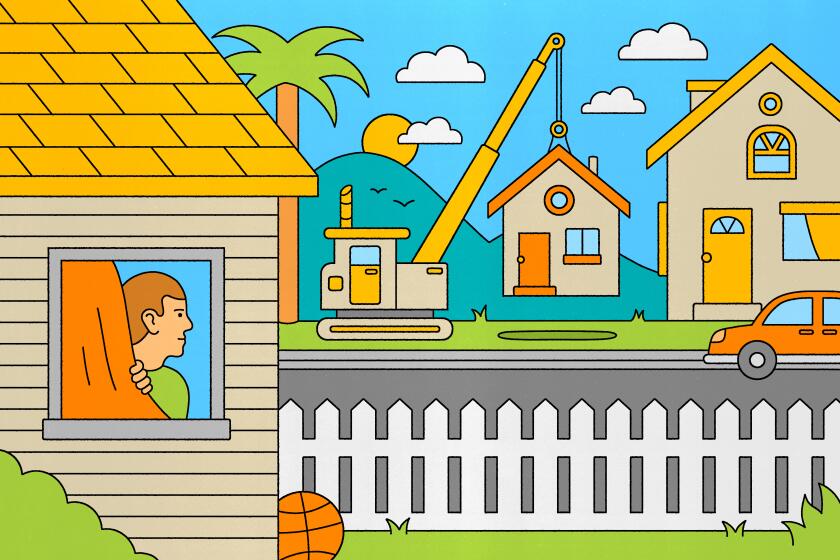A new federal policy allows you to finance for an ADU. What you need to know

- Share via
In an effort to address the nation’s affordable housing crisis, the Federal Housing Administration announced a new policy Monday that will make it easier to buy or refinance a house with an accessory dwelling unit, or build a new ADU.
Previous rules for FHA-backed loans would allow lenders to consider rental income from duplexes but not ADUs. Under the new policy, lenders will be allowed to count income from small housing units built inside, attached to or on the same property as a primary residence when underwriting a mortgage.
It will specifically allow for 75% of the estimated ADU rental income for some borrowers to qualify for an FHA-insured mortgage on a property with an existing ADU. It will also allow the use of 50% of the estimated rental income from a new ADU the borrower plans to attach to an existing structure such as in a garage or basement conversion to qualify for a mortgage under FHA’s renovation loans, also known as 203(k) Rehabilitation Mortgage Insurance program.
The first question to ask before deciding on an accessory dwelling unit is, ‘What am I trying to accomplish?’ Then check whether an ADU is the way to achieve that goal.
What’s also new with this policy is that lenders will be able to consider projected income whether it’s a buyer who is interested in purchasing a home with an unoccupied ADU or a homeowner who wants to construct an ADU, said FHA Commissioner Julia R. Gordon.
“I think that is in some ways the most interesting aspect of our program because of course, one of the reasons we’re making this policy change is to help more borrowers qualify for homeownership and counting rental income is one way to do that,” Gordon said.
The other big goal of the new policy is to help increase housing supply by bringing new units onto the market and that is “why we thought it was so important to try to count a portion of that projected income even though it’s something that isn’t tangible yet,” she said.
In addition, this new policy is intended to create more wealth-building potential for first-time home buyers, seniors, and intergenerationally through homeownership.
The FHA doesn’t lend money directly to prospective or current homeowners, rather it provides guarantees for loans issued by banks, which encourages lenders to make loans to households or communities that might otherwise not be reached. The guarantees are available only for loans that stay within the claim limits set by the FHA.
There are no other eligibility requirements having to do with who the buyer is, Gordon said.
If a prospective home buyer wants to learn more about the policy or whether they are eligible, Gordon encourages first-time home buyers to talk with a Housing and Urban Development certified housing counselor.
More to Read
Sign up for Essential California
The most important California stories and recommendations in your inbox every morning.
You may occasionally receive promotional content from the Los Angeles Times.











